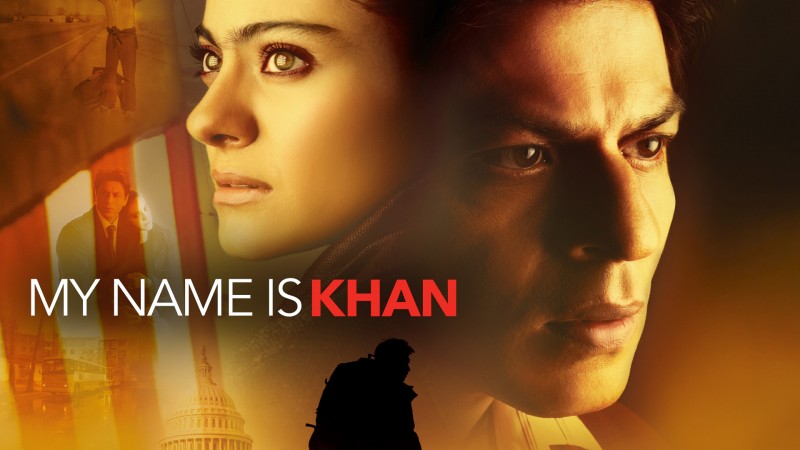
An important player in the Indian film industry, Karan Johar is renowned for his distinctive brand of filmmaking, which frequently features opulent production design, an all-star cast, and dramatic plots. But one of the most intriguing things about his career is how often he gives his films titles that start with the letter "K." Fans and critics alike started to look forward to each new release with a "K" title as a result of this tradition becoming so closely associated with his work. But Karan Johar broke this trend in 2010 with his widely praised movie "My Name is Khan." In this article, we'll delve into the film's themes, characters, and influence on Indian cinema as well as the significance of this break from the "K" tradition.
With the release of "Kuch Kuch Hota Hai," Karan Johar's directorial debut, his career took off in the late 1990s. The title of this movie became a standard for Johar's subsequent works, and he continued to use titles that began with the letter "K." The "K" tradition was further cemented by subsequent films like "Kabhi Khushi Kabhie Gham," "Kabhi Alvida Naa Kehna," and "Kabhi Khushi Kabhie Gham."
This custom went beyond just working with actors whose names began with "K," most notably Shah Rukh Khan and Kajol, who together made for a successful on-screen trio. With "My Name is Khan," Karan Johar, however, took a risky step in 2010 by bucking the 'K' trend.
The gripping drama "My Name is Khan" examines issues of identity, tolerance, and the effects of prejudice. The movie My Name Is Khan and I Am Not a Terrorist, which was directed by Karan Johar and starred Shah Rukh Khan and Kajol, follows the life of Rizwan Khan, a Muslim man with Asperger's syndrome who travels to meet the President of the United States and say, "My Name Is Khan, and I Am Not a Terrorist." This choice to depart from the "K" tradition represented a departure in theme as well as being purely aesthetic.
The story of the movie centres on Rizwan Khan, whose life has been severely impacted by Islamophobia since 9/11. A potent metaphor for the prejudice experienced by Muslims in the wake of the terrorist attacks is Rizwan's attempt to meet the President and clear his name. By bucking the "K" tradition and addressing this important matter, Karan Johar demonstrated his willingness to dispel myths and tackle difficult social and political issues in his work.
Rizwan Khan, played by Shah Rukh Khan, is unquestionably one of the movie's best performances. His nuanced portrayal makes a character with Asperger's syndrome more relatable, dispelling common misconceptions about people with autism. Khan received a lot of praise from both critics and viewers for his commitment to the part and his ability to accurately portray the character's emotional journey. His acting range was on full display in this role, which marked a significant departure from his usual romantic hero roles.
The legendary on-screen duo of Shah Rukh Khan and Kajol came together once again for "My Name Is Khan." Their on-screen chemistry and respective performances as Mandira and Rizwan Khan gave the movie's emotional core more depth. Particularly Kajol gave a moving performance as a mother who loses her son tragically as a result of the societal bigotry.
"My Name is Khan" was able to adopt a more international viewpoint thanks to Karan Johar's choice to set a sizable portion of the movie in the United States. Due to the fact that prejudice and discrimination are problems that people from different backgrounds all over the world face, it brought attention to how universal the themes explored in the movie are. This global perspective gave the film a broader appeal and increased its audience relatability.
"My Name is Khan" was more than just a movie; it was also a social commentary on the value of acceptance, cooperation, and eschewing stereotypes. It sparked discussions on racial profiling and Islamophobia, igniting a debate about these urgent issues in both India and the US. The movie had an impact that went beyond the screen, spurring initiatives to end prejudice and advance religious harmony.
The praise that "My Name is Khan" received from the critics was a testament to its superb storytelling and stirring performances. The movie received numerous honours and awards, including Karan Johar winning the Filmfare Award for Best Director. It received praise at international film festivals as well, solidifying its place in Indian cinema history.
In Karan Johar's illustrious career as well as in Indian cinema in general, "My Name is Khan" is recognised as a significant turning point. Johar showed his versatility as a director and his willingness to engage with socially relevant themes by straying from his signature 'K' titles. The movie's depiction of prejudice and discrimination resonated with viewers all over the world, igniting crucial discussions and spurring actual change.
"My Name is Khan" serves as a reminder of the ability of cinema to defy expectations, dispel stereotypes, and leave a lasting impression in a world that is frequently governed by formulas and traditions. This movie will be cherished for generations to come thanks to its endearing characters and thought-provoking plot, cemented its status as a timeless classic in Indian cinema.
The New Agneepath: A Timeless Tale for a New Generation
How Vinod Khanna Became a Bollywood Legend: Lesser-Known Facts on His Birth Anniversary
The Intriguing Parallels Between Sanjay Dutt and Hrithik Roshan's Roles in Two Blockbusters